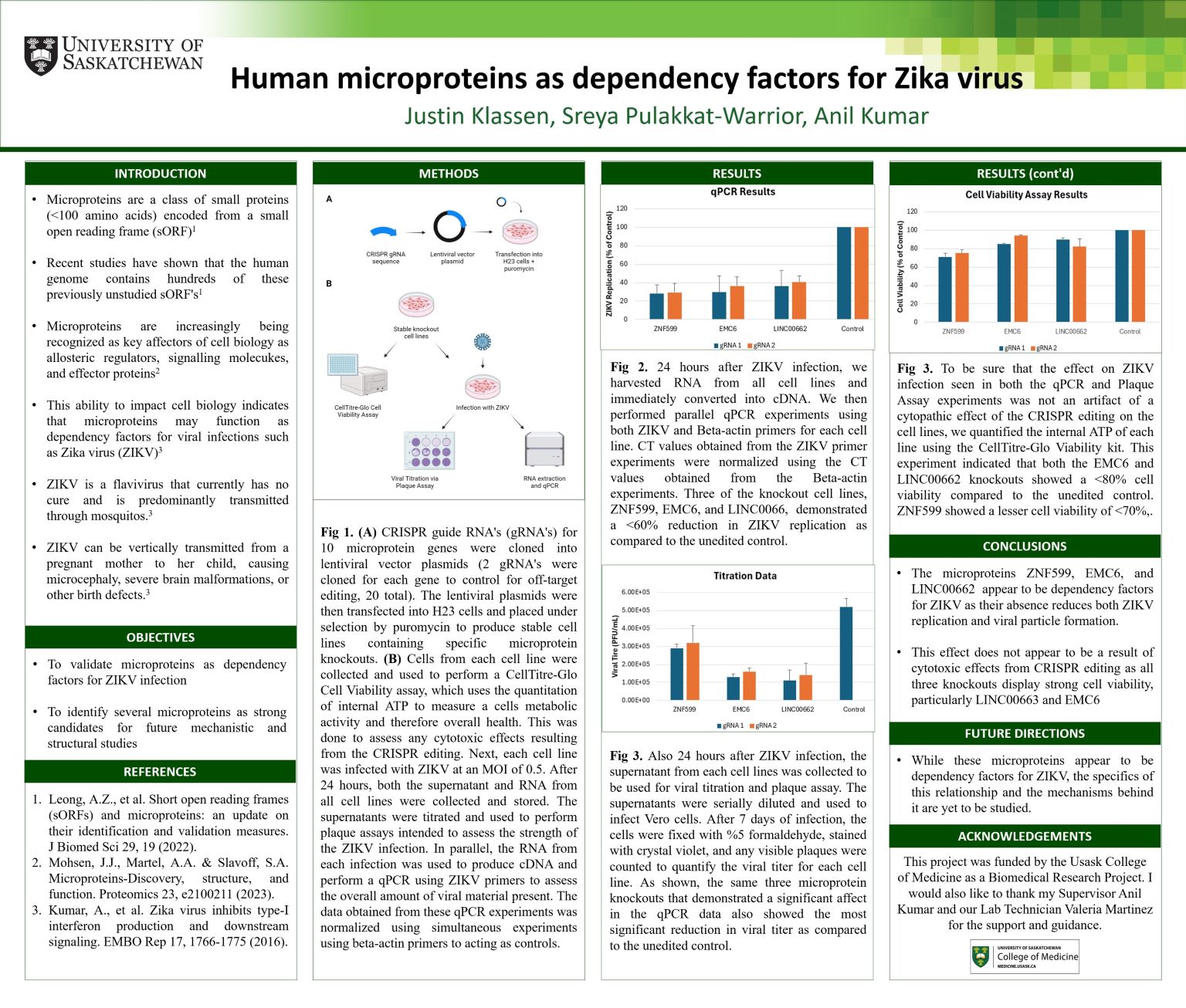
Human microproteins as dependency factors for Zika virus
Justin Klassen
Zika virus is a mosquito-transmitted human pathogen endemic to tropical and subtropical areas. Infection with Zika virus results in a flu-like illness in most cases. However, during infection in pregnant women, the virus can cross through the placenta and infect the brain of the fetus, severely affecting brain development. Currently there are no vaccines or drugs available to manage Zika infection. Like many viruses, Zika depends extensively on human proteins to successfully infect cells. Relatedly, a recently discovered group of human proteins termed ‘microproteins’ that are less than 100 amino acids in length have been shown to play important roles in cell cycle regulation, host signalling pathways and diseases like cancer. To assess the role of microproteins in Zika infection, we cloned CRISPR gRNA against 10 microprotein genes into lentiviral vector plasmids and used those plasmids to produce cell lines with stable microprotein knockouts. We then infected each cell line with ZIKV and used viral titration by plaque assay and qPCR methods to assess the strength of each infection relative to an unedited control. We found that 3 genes: LINC00662, ZNF599, and EMC6 appear to be dependency factors for ZIKV as their removal led to significantly less effective ZIKV infections.
